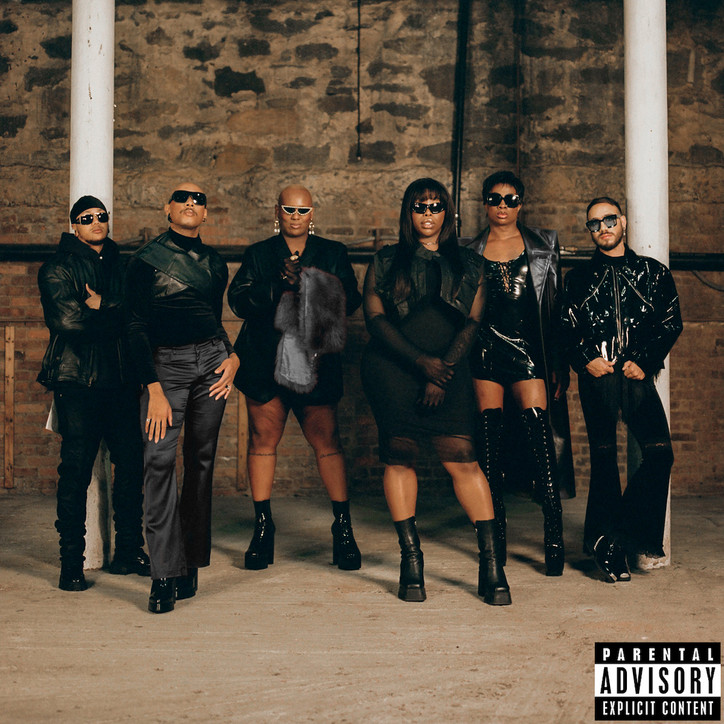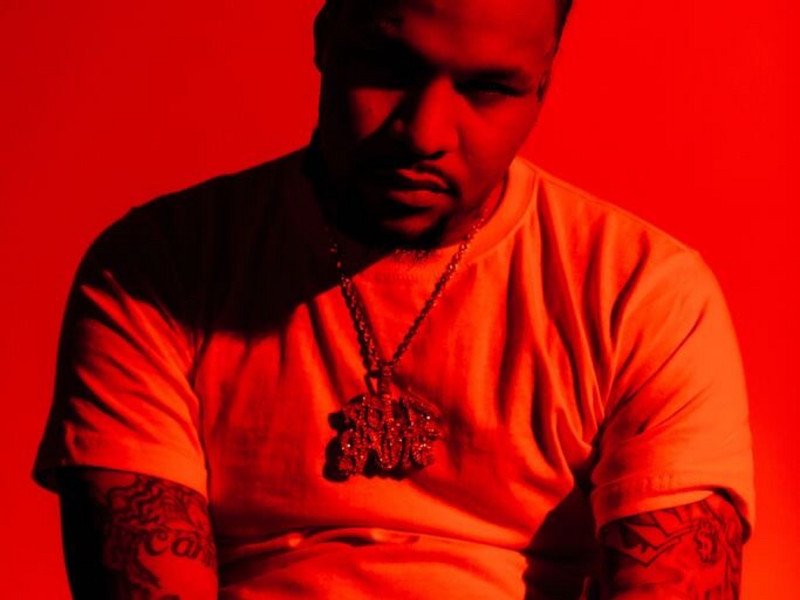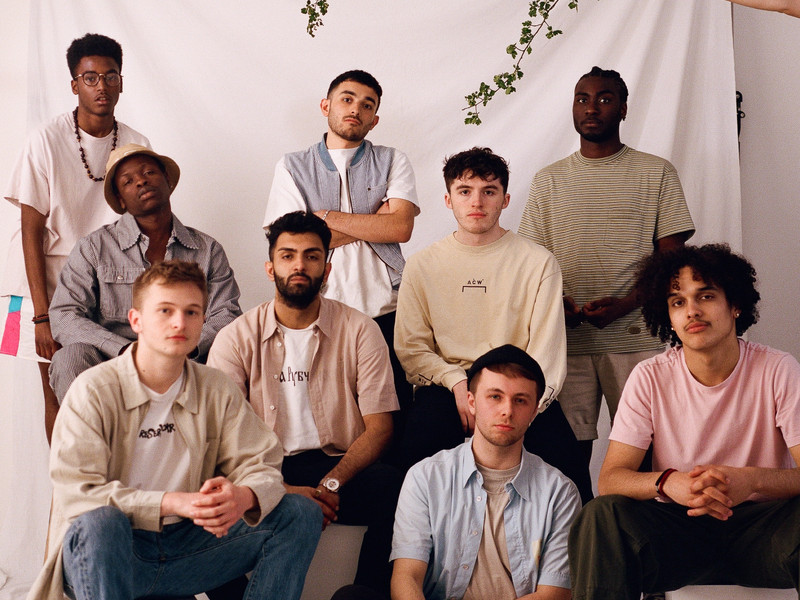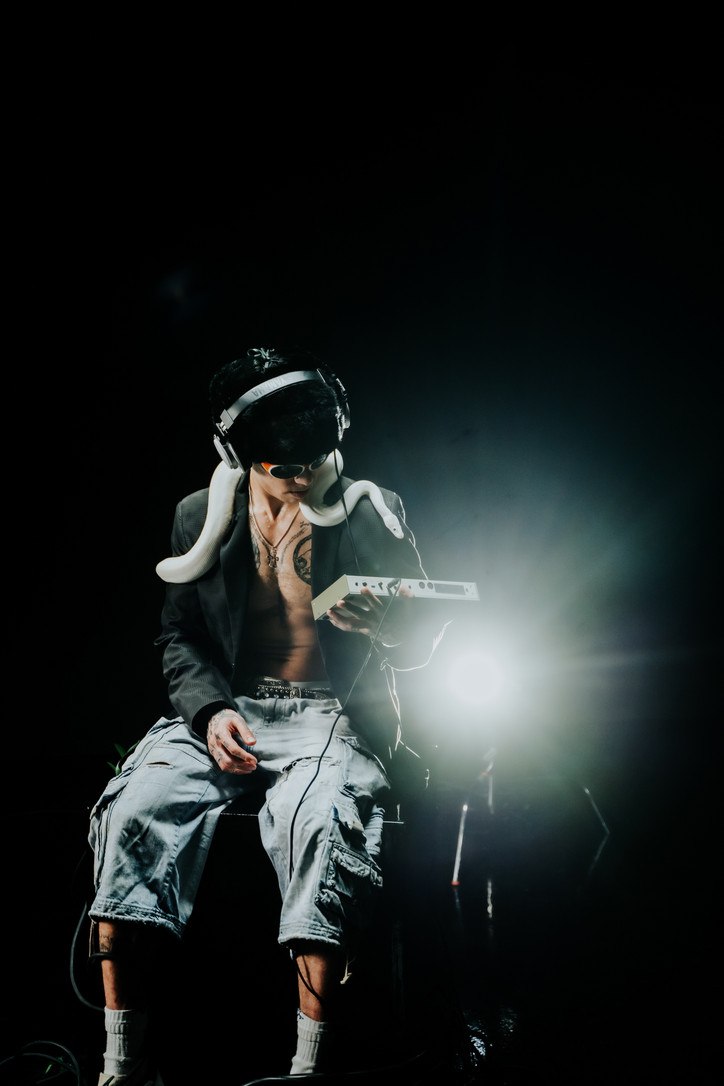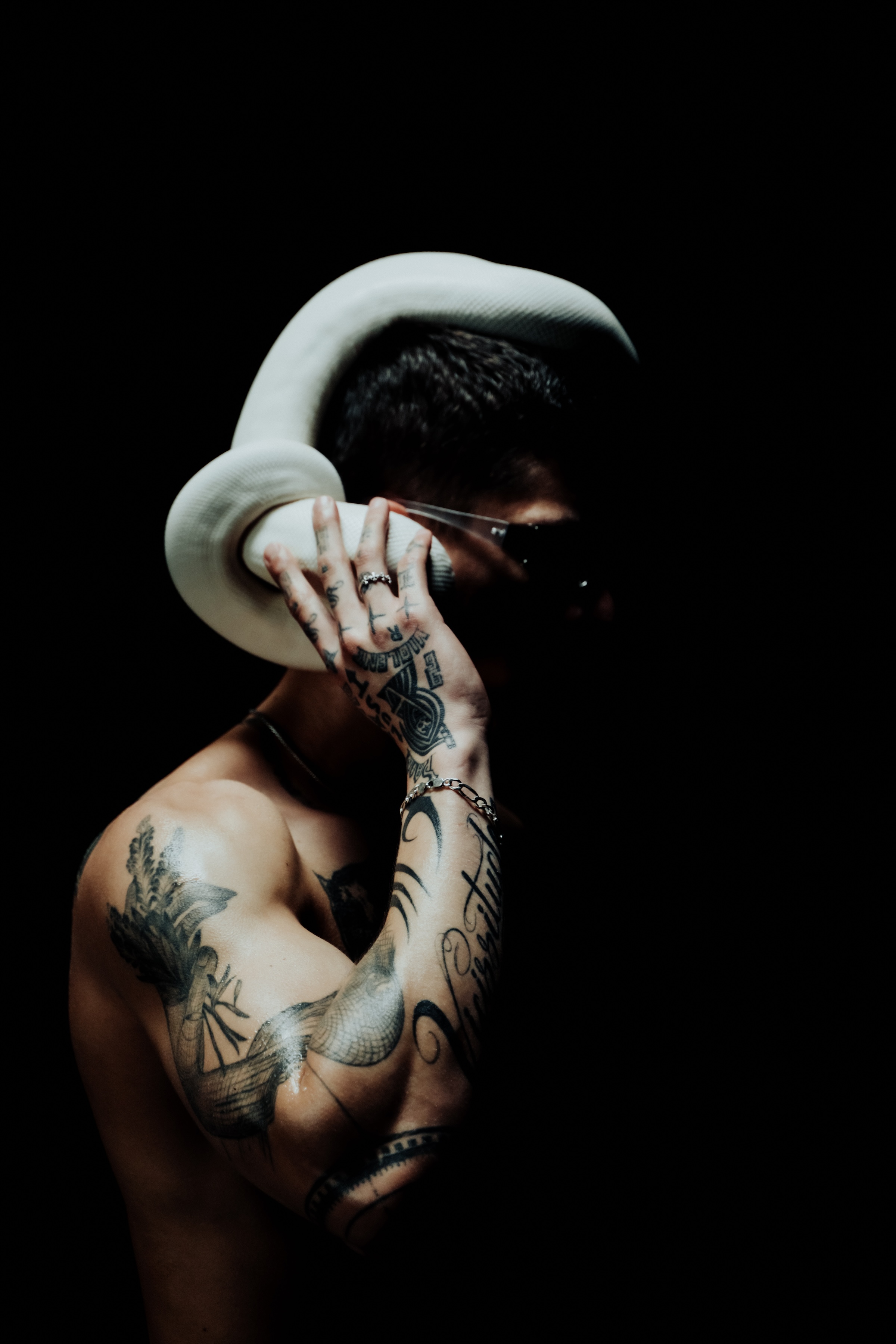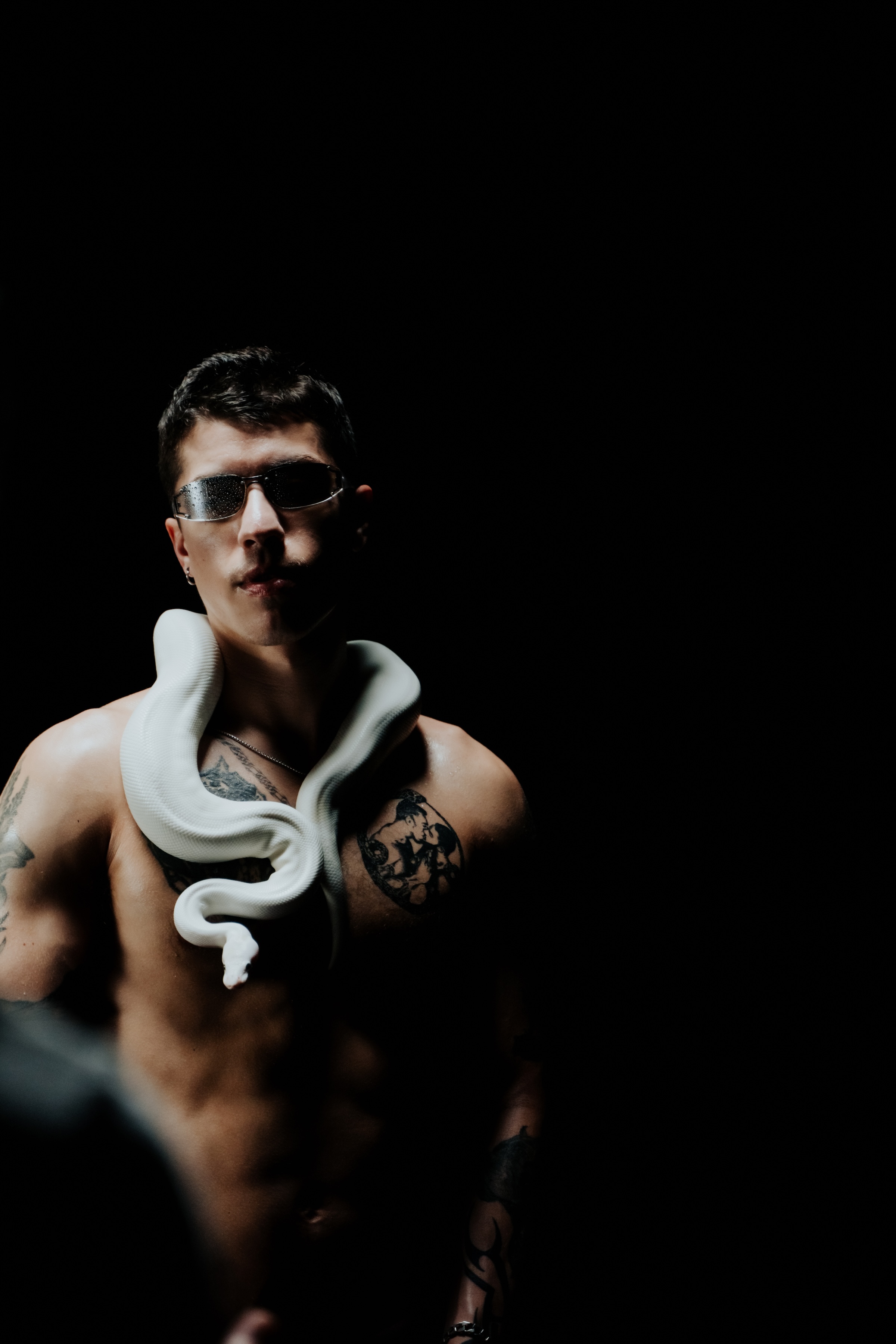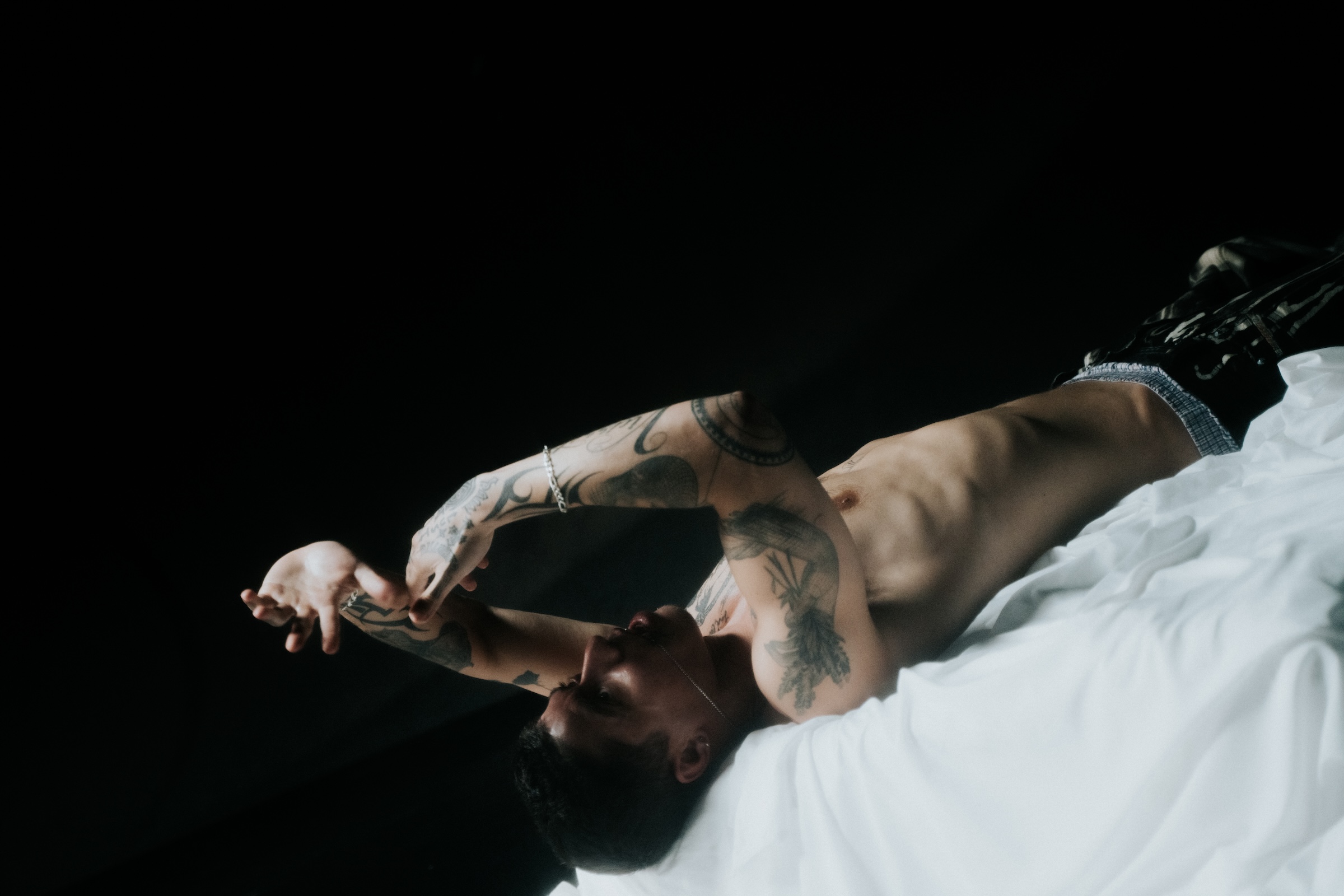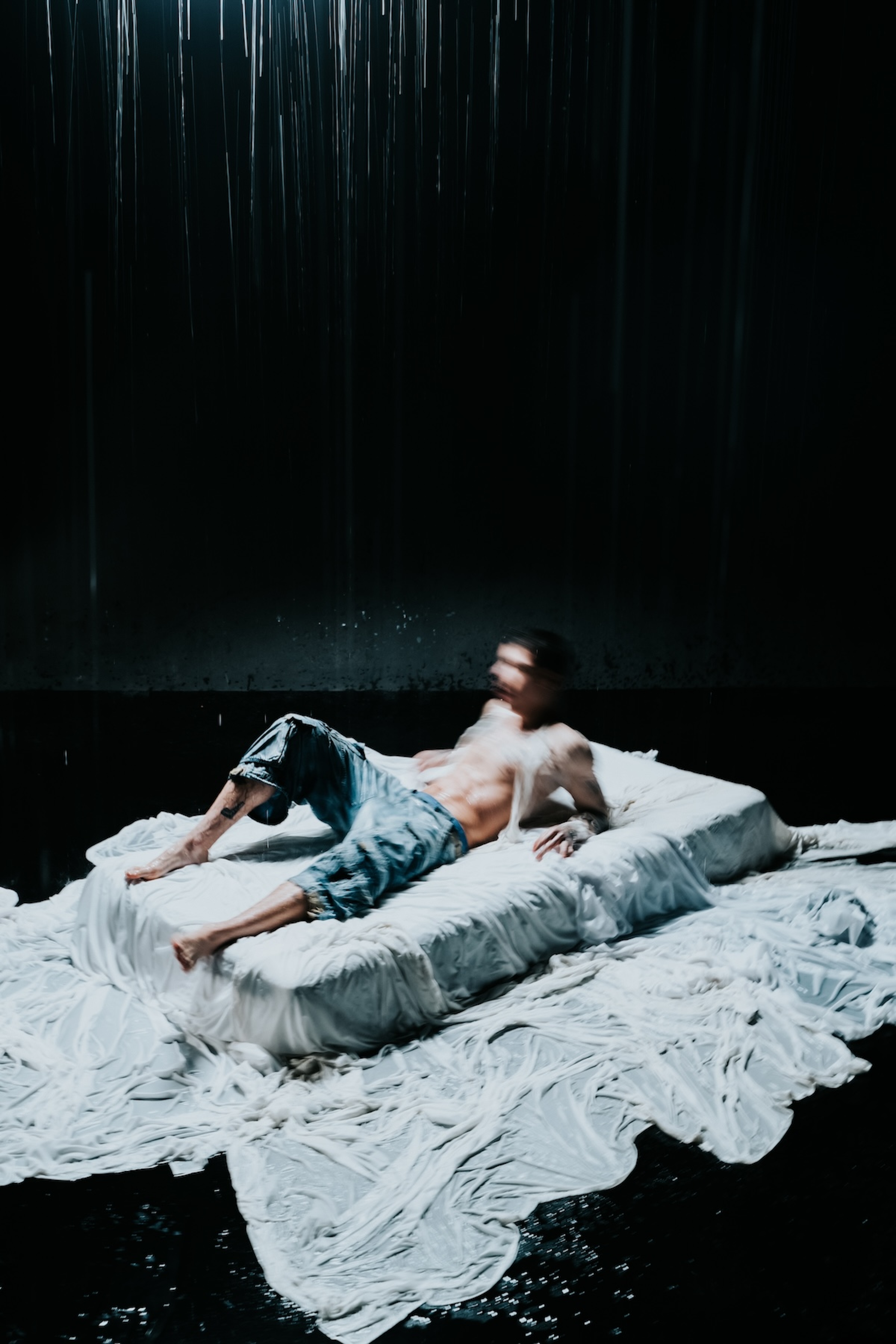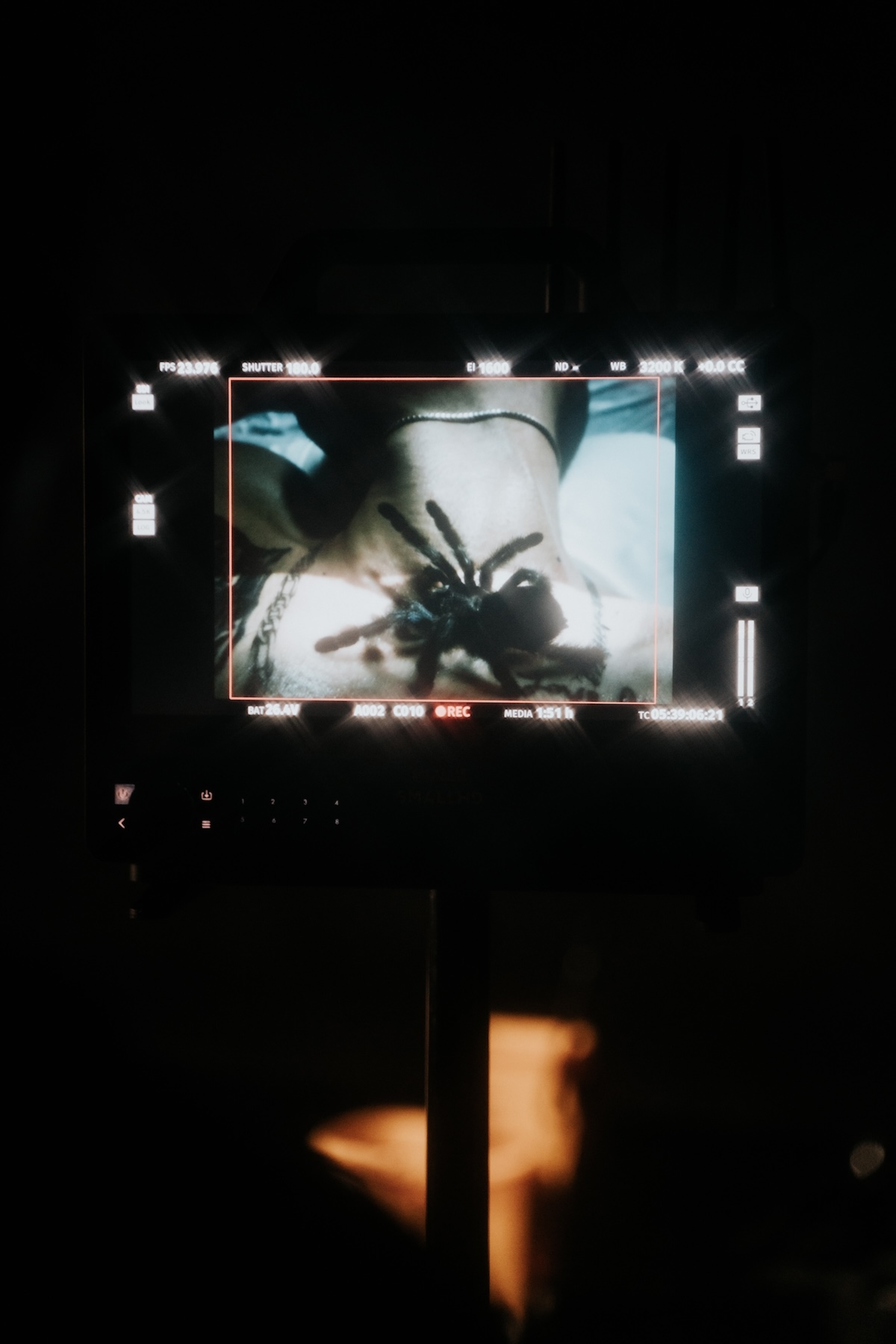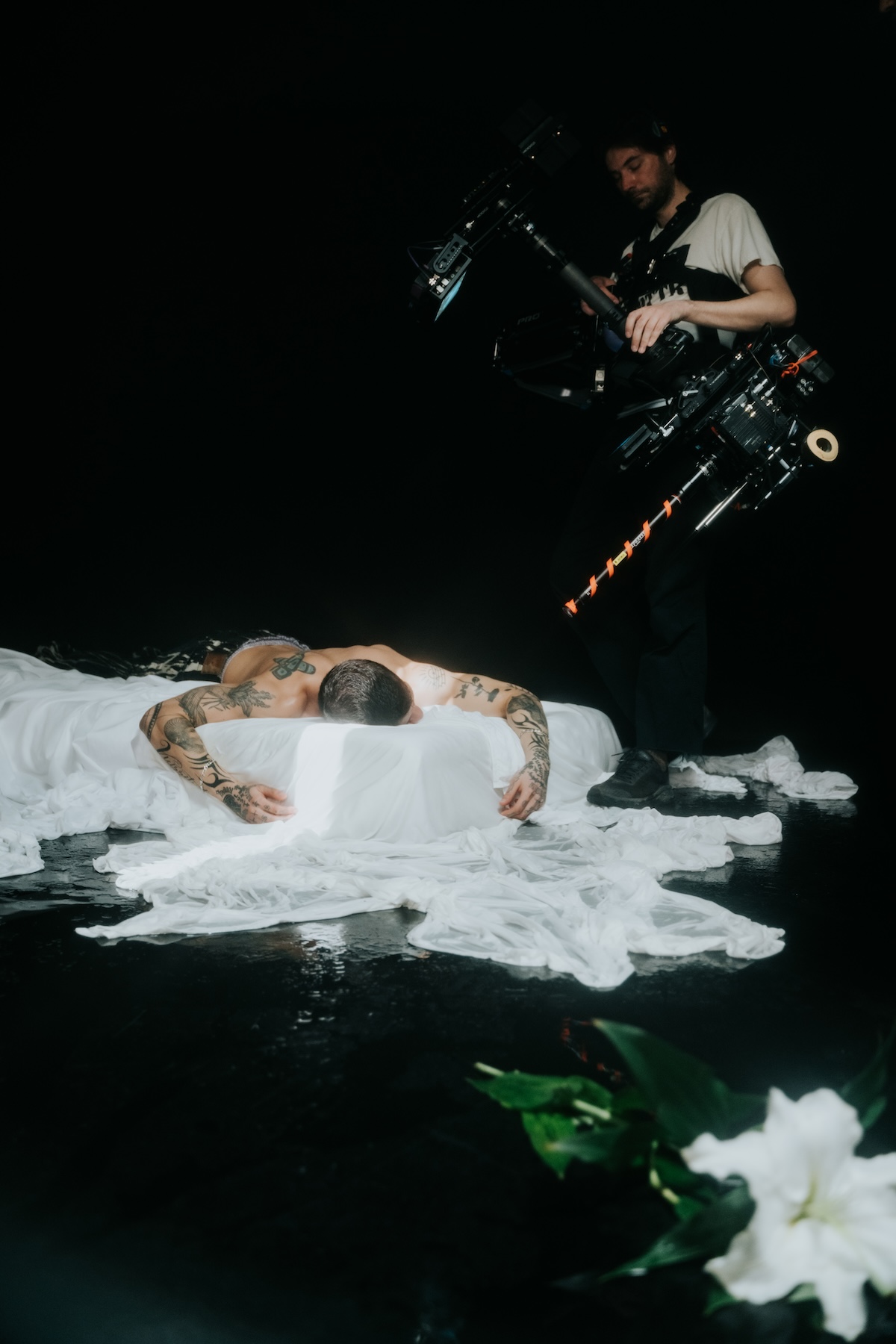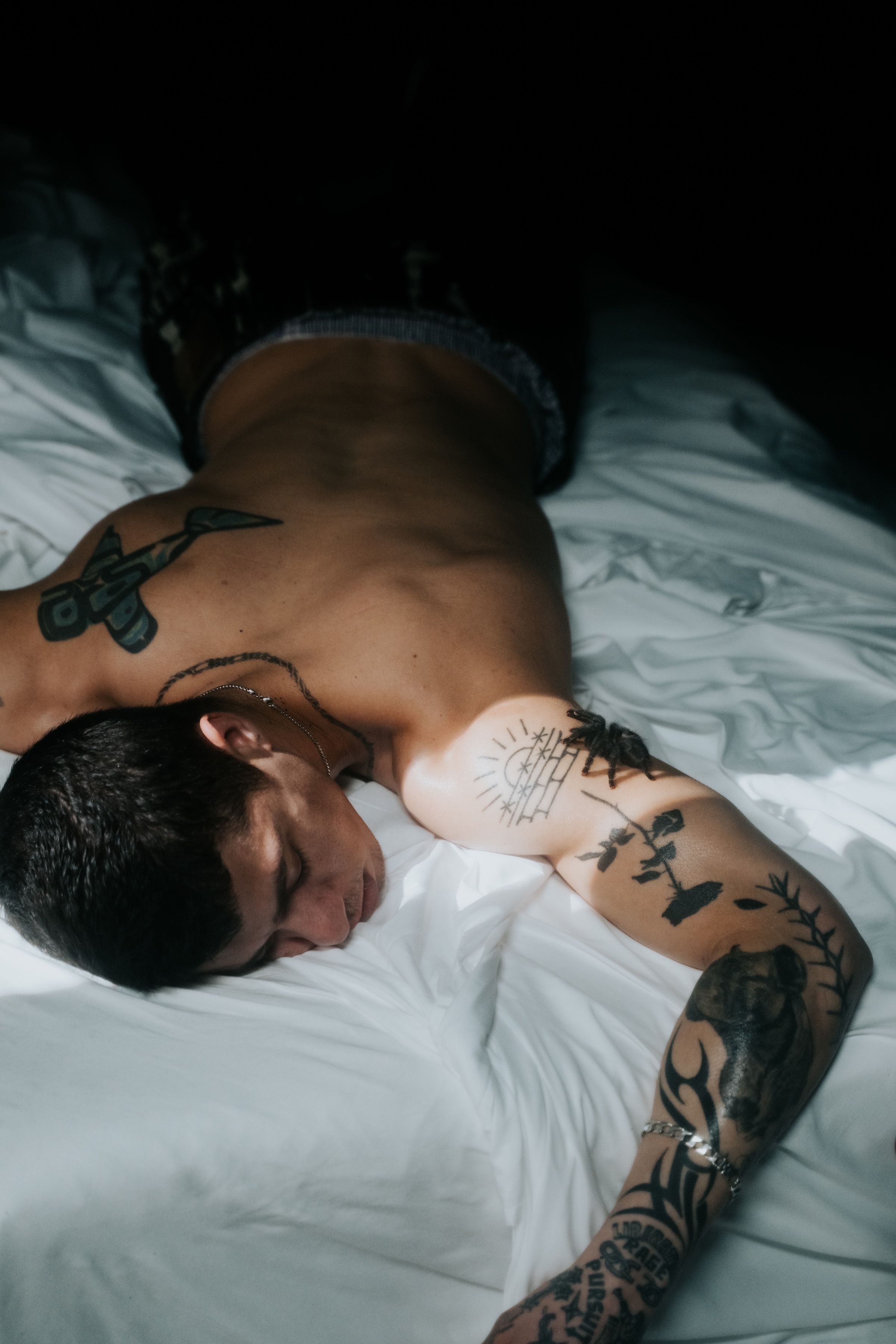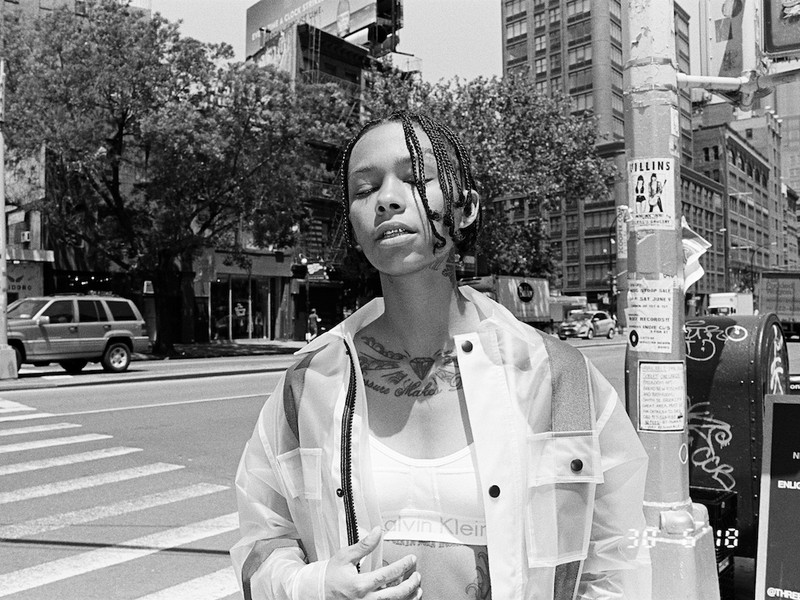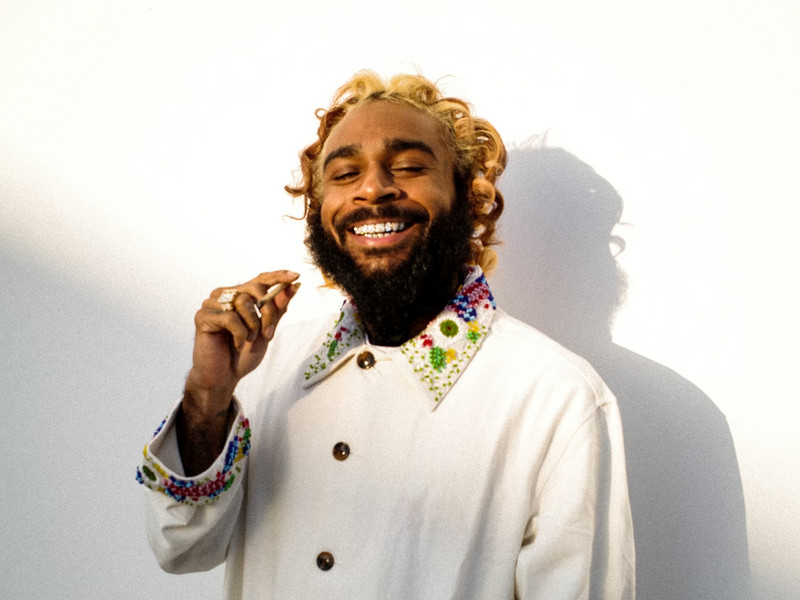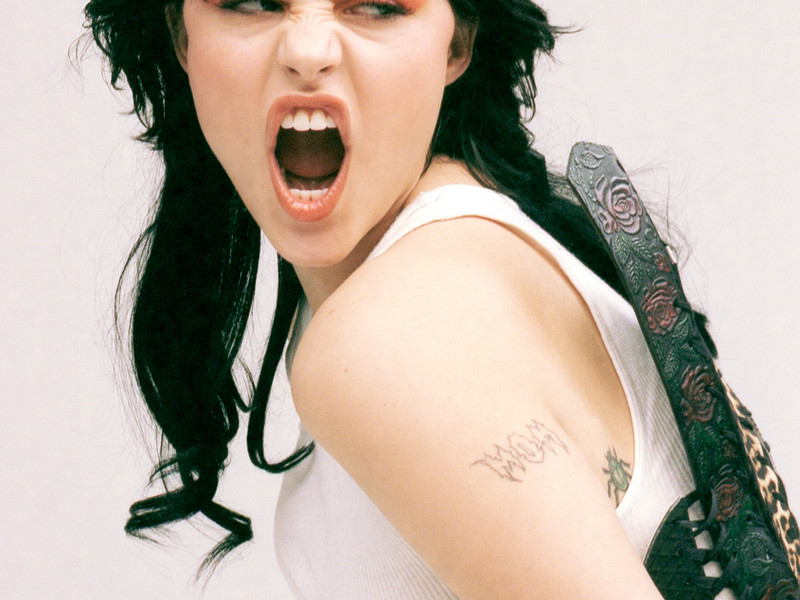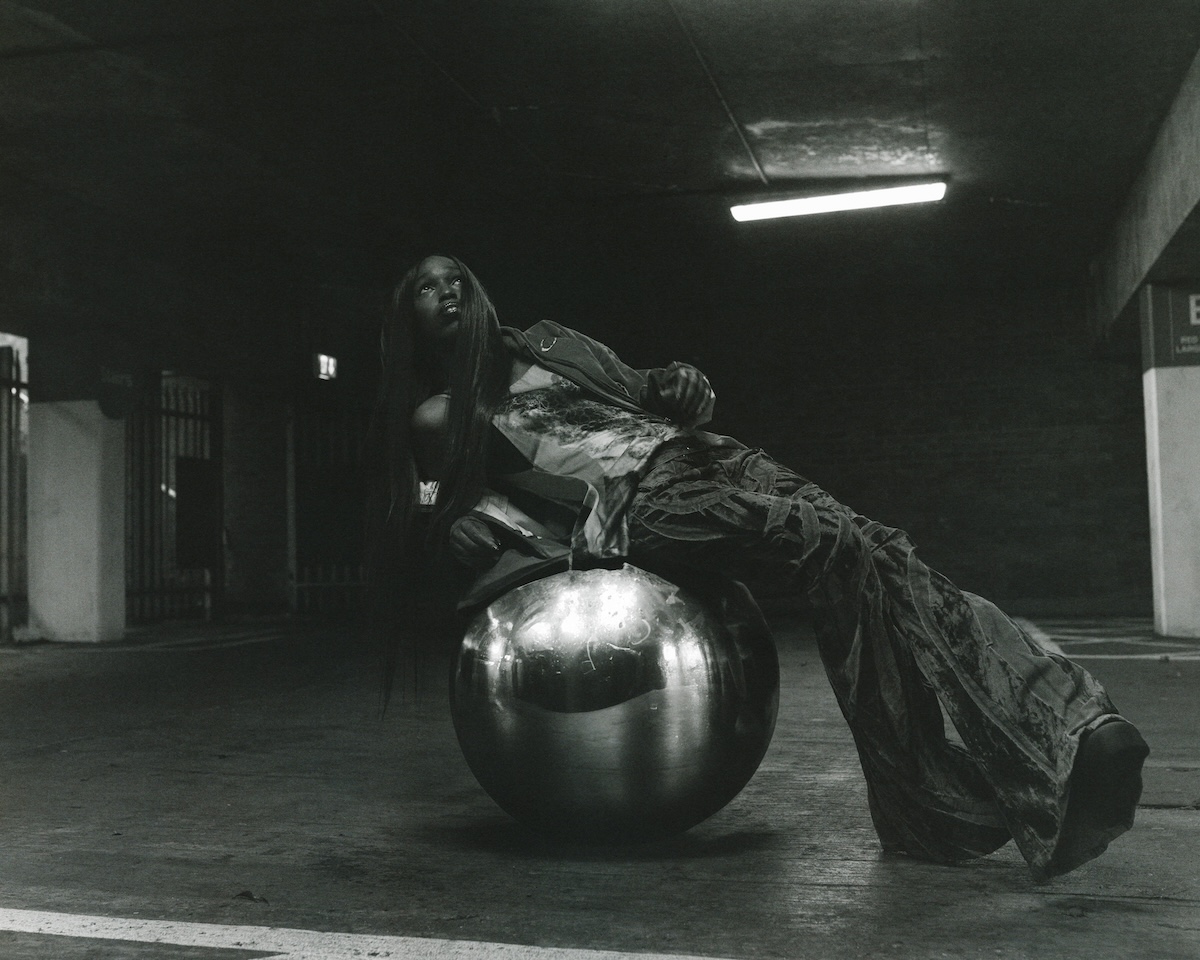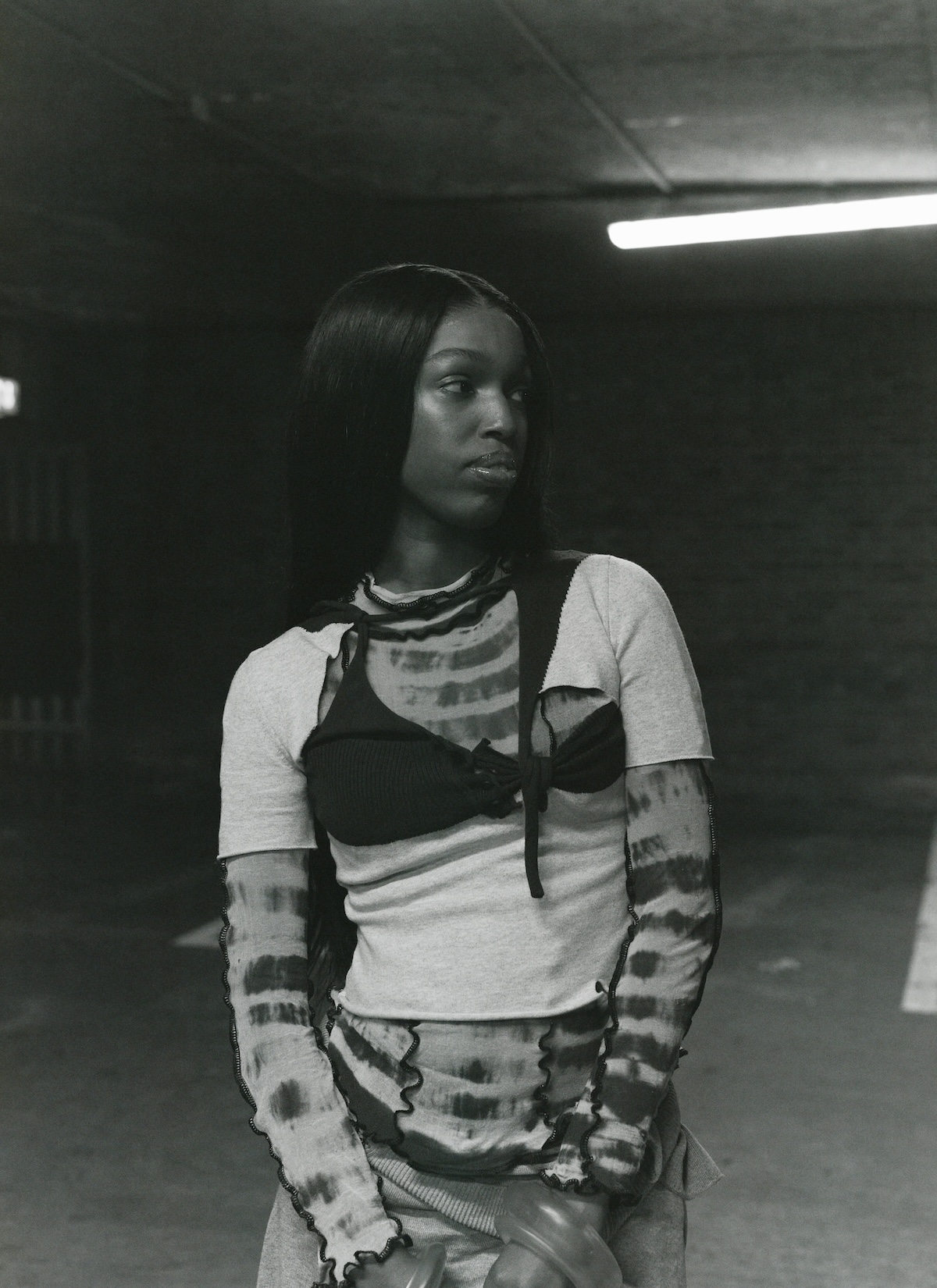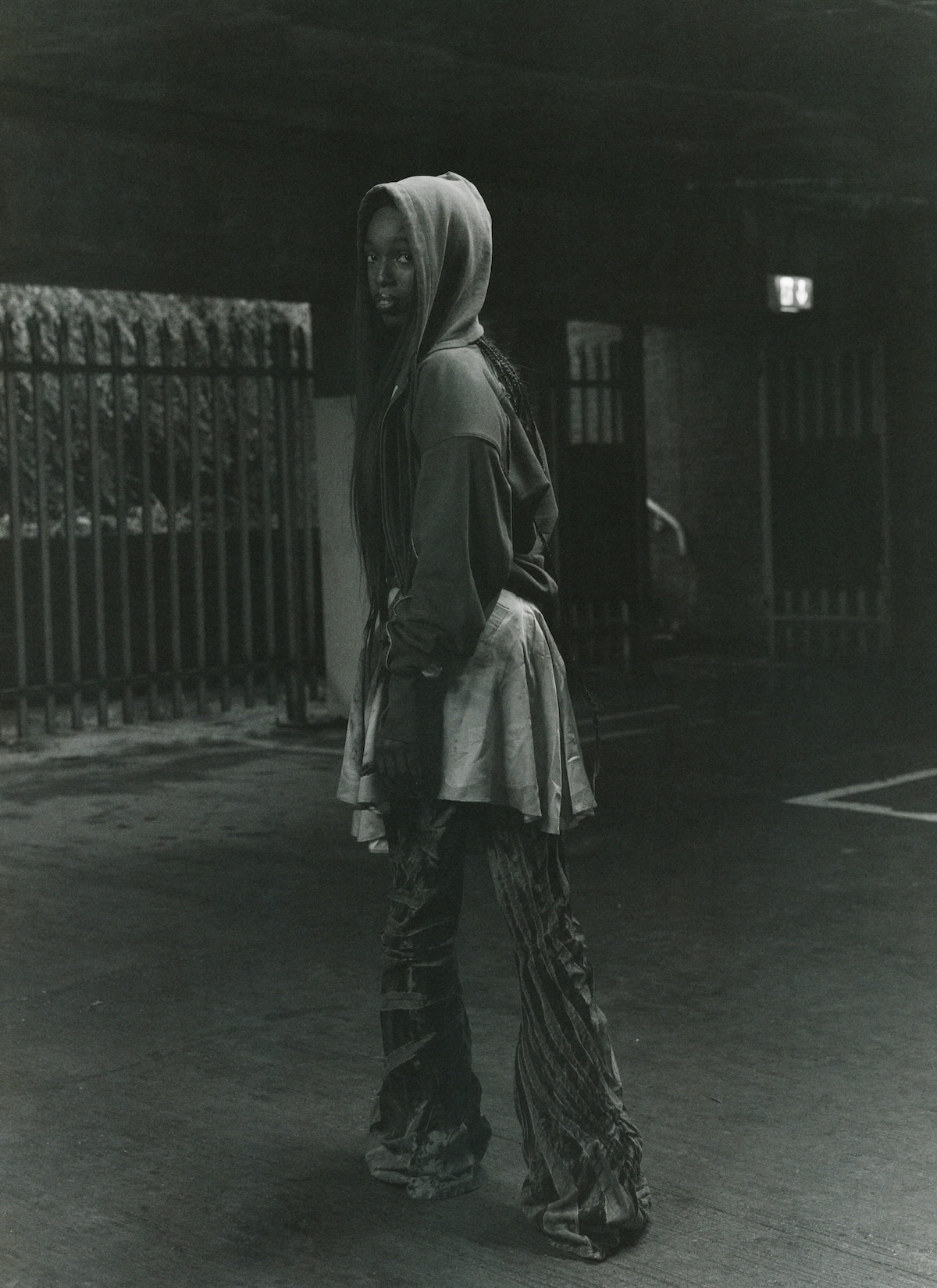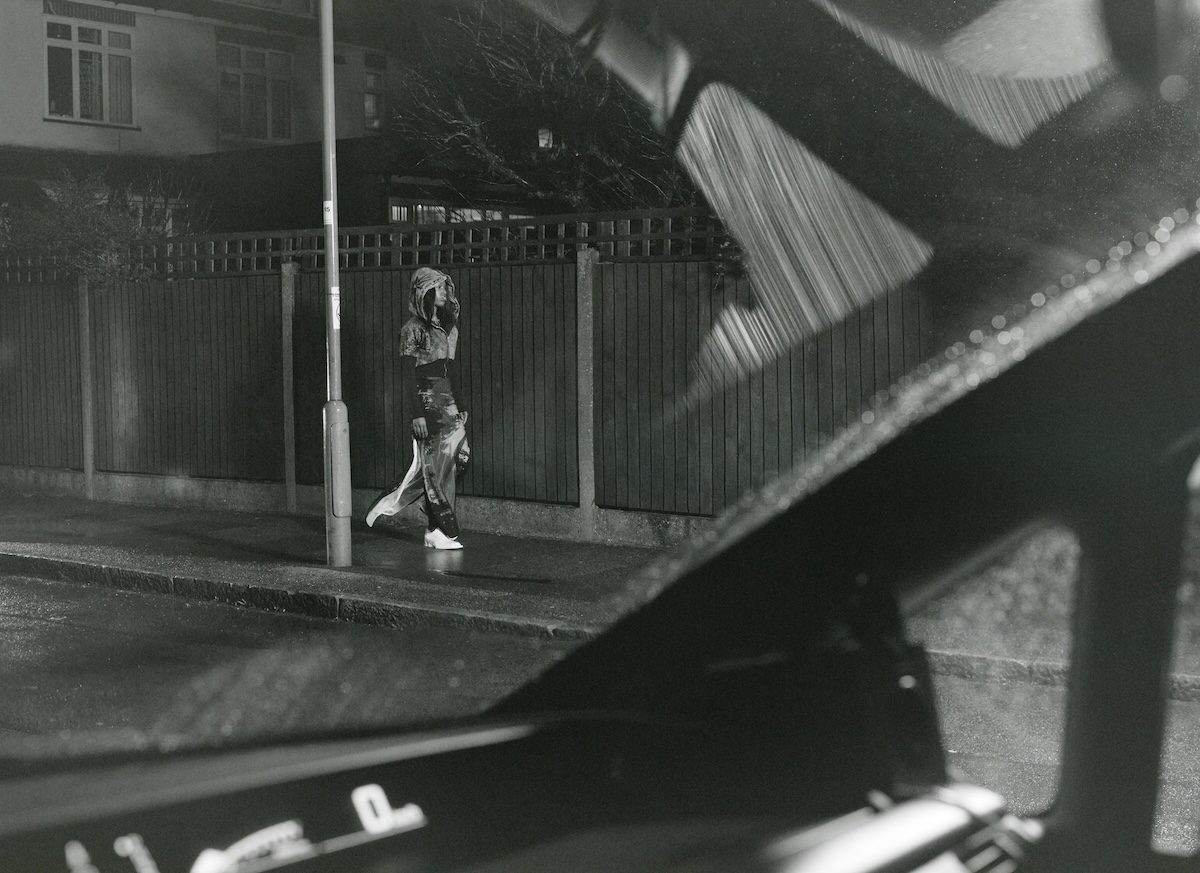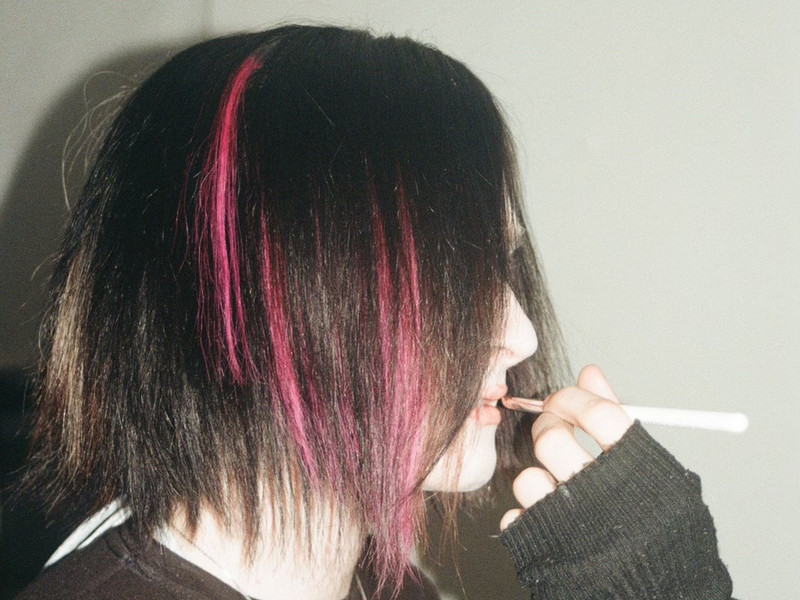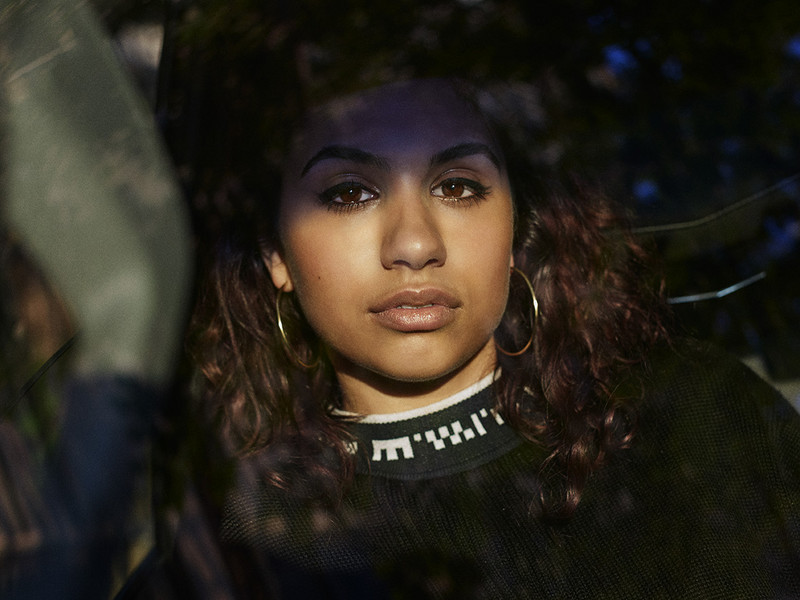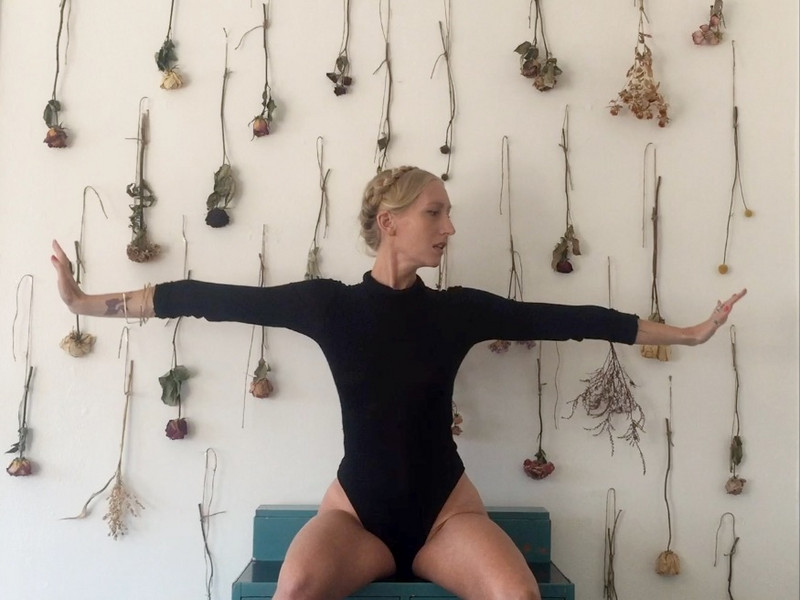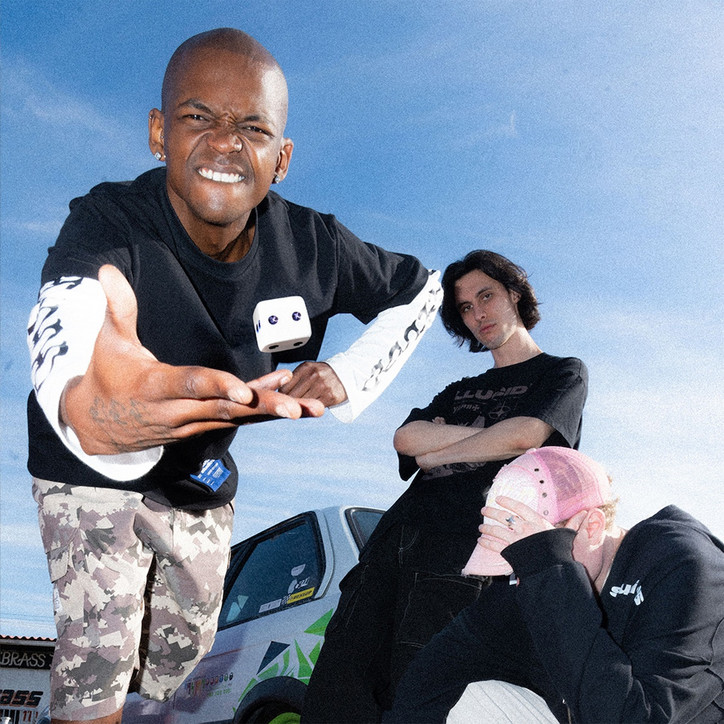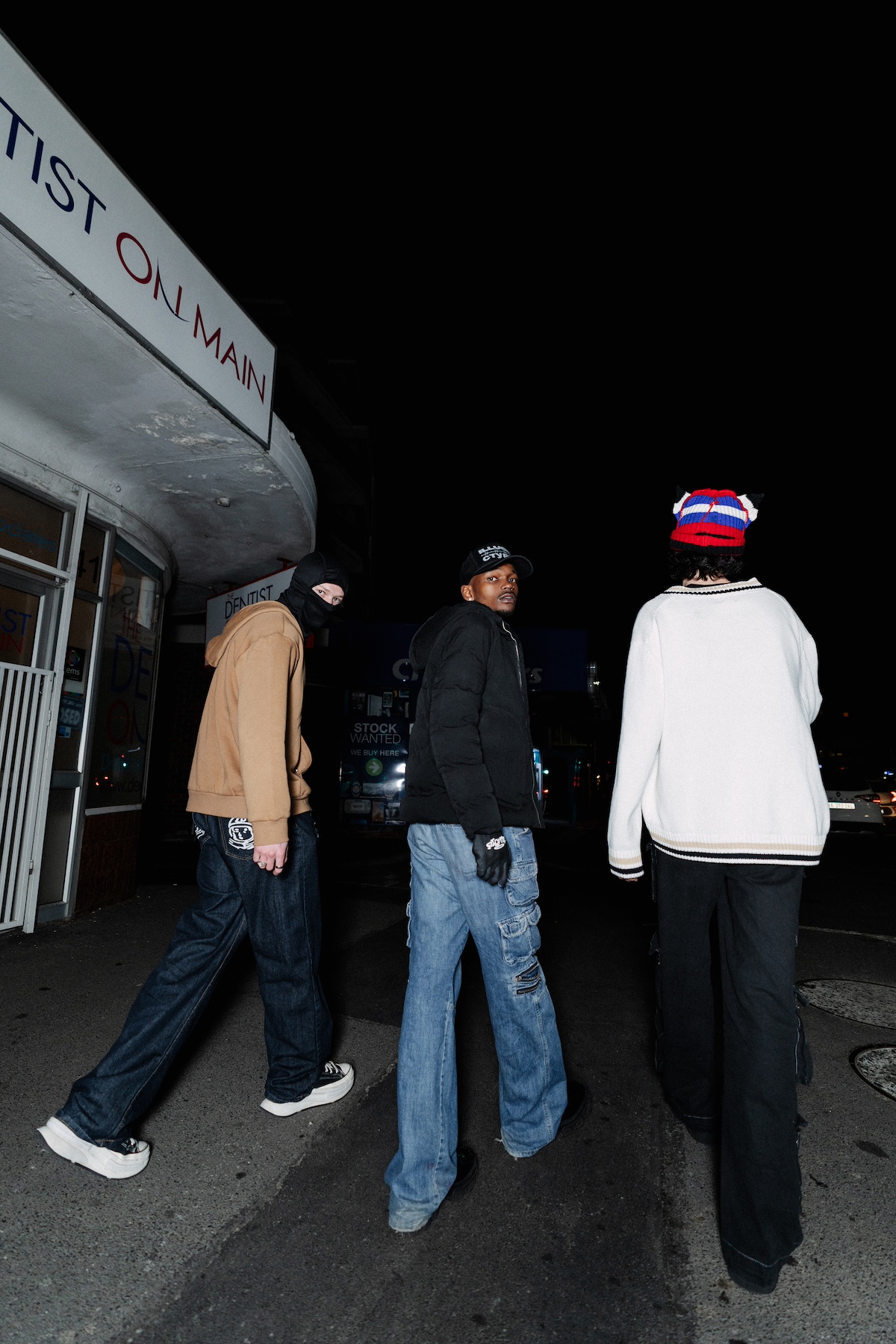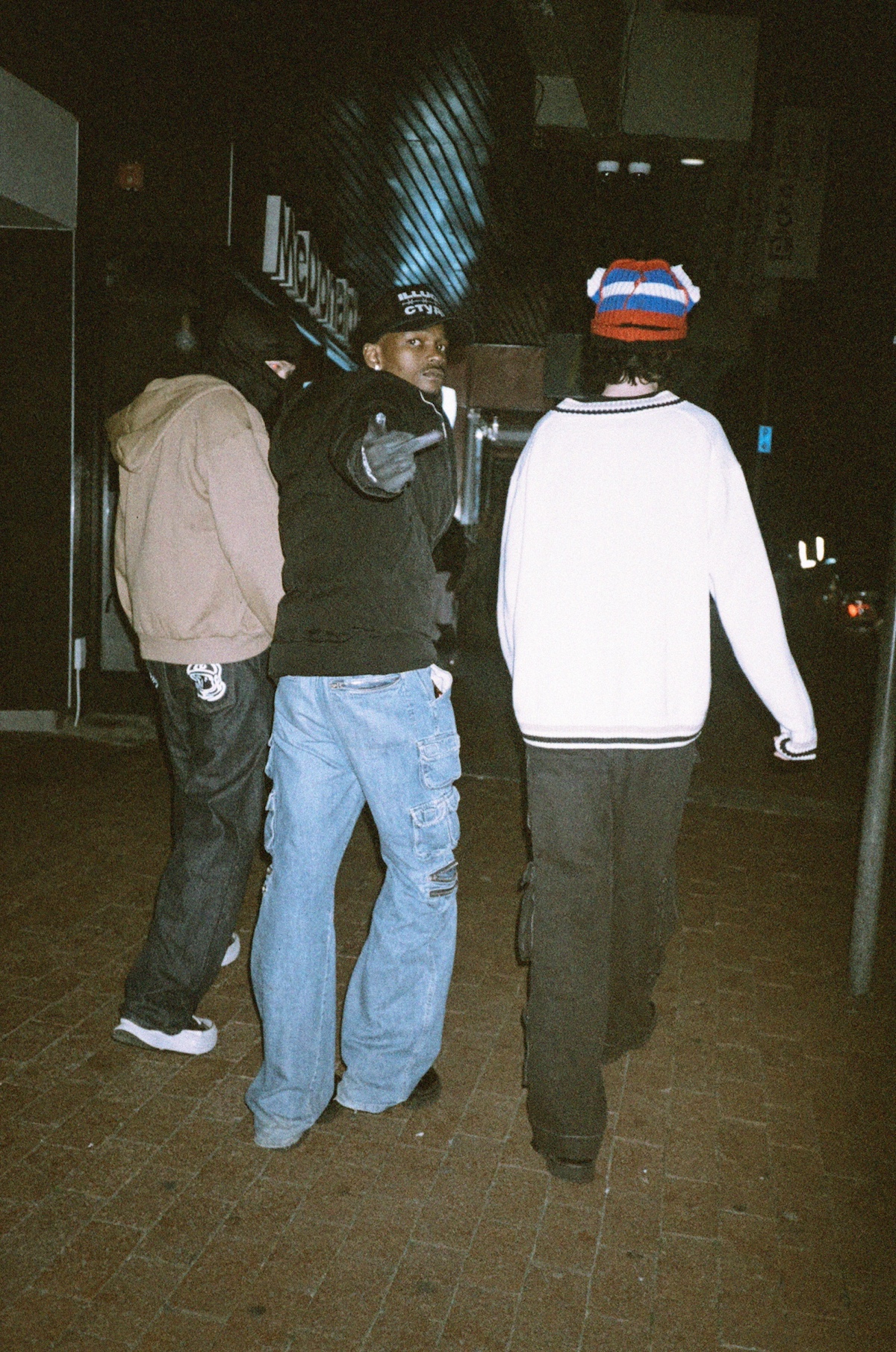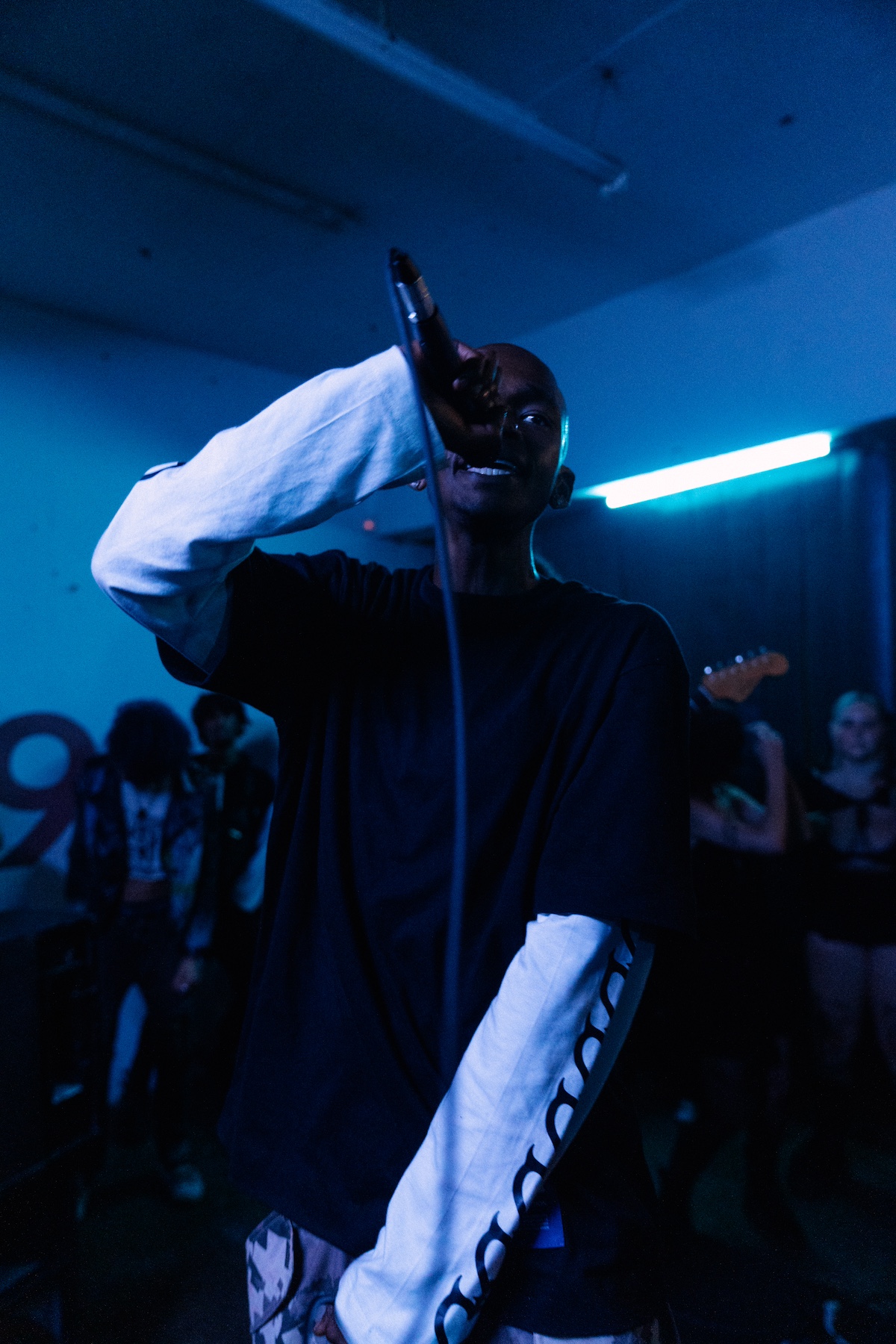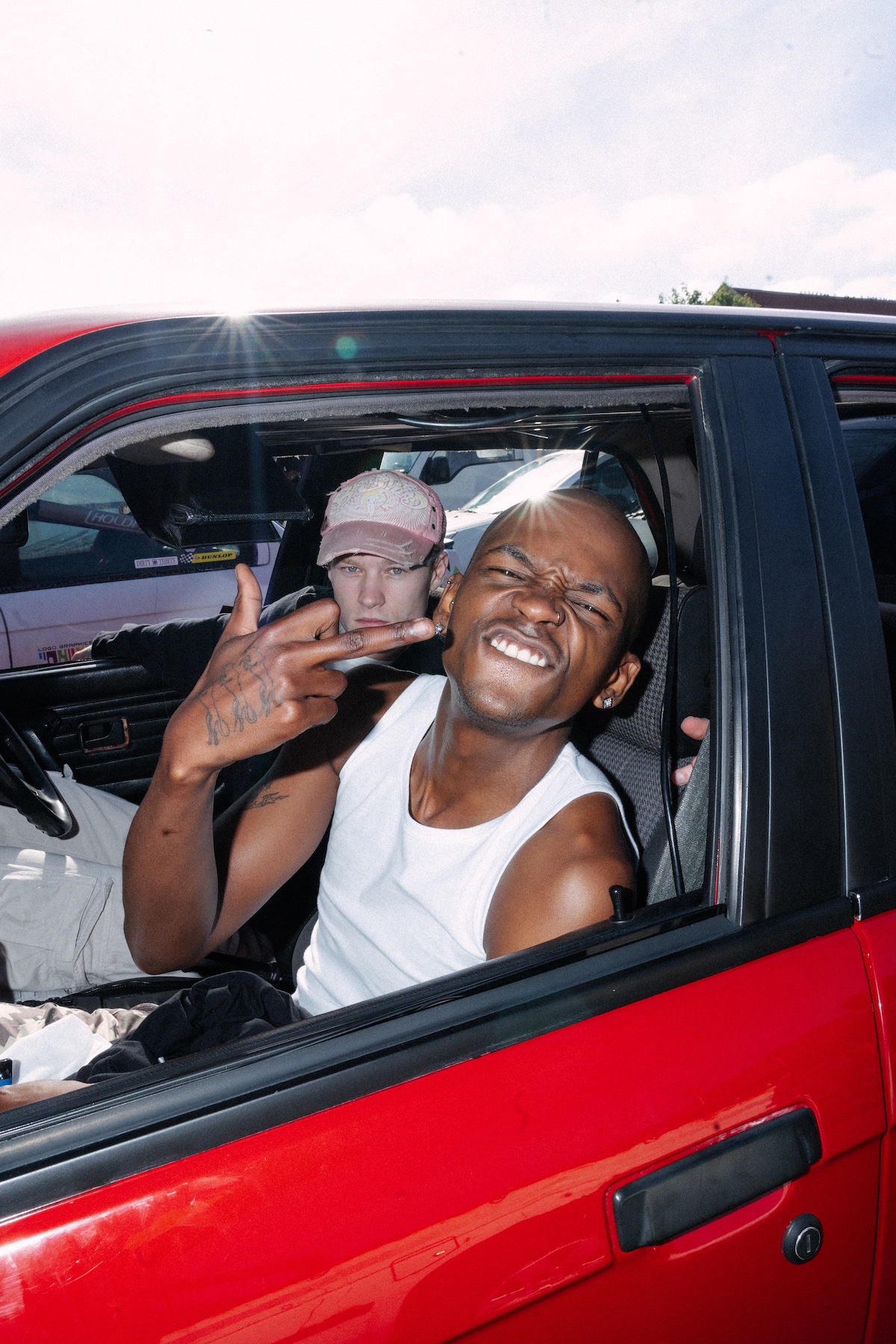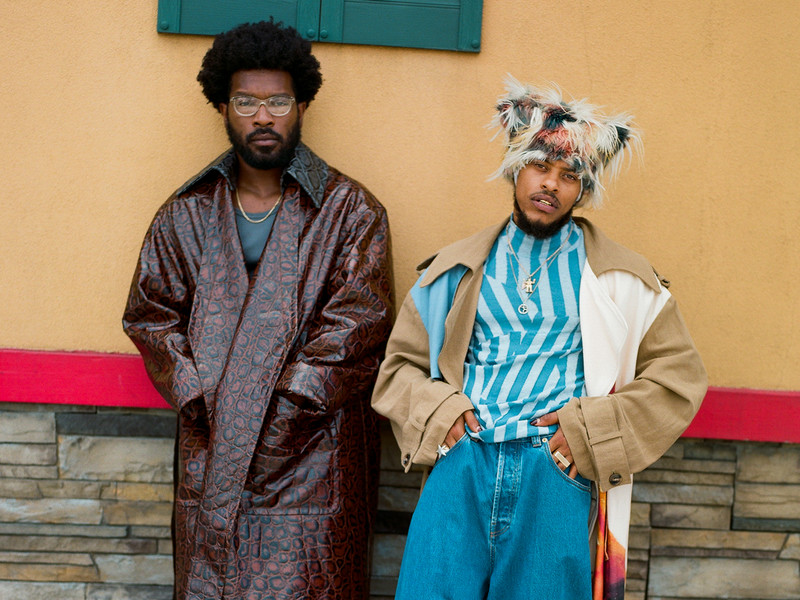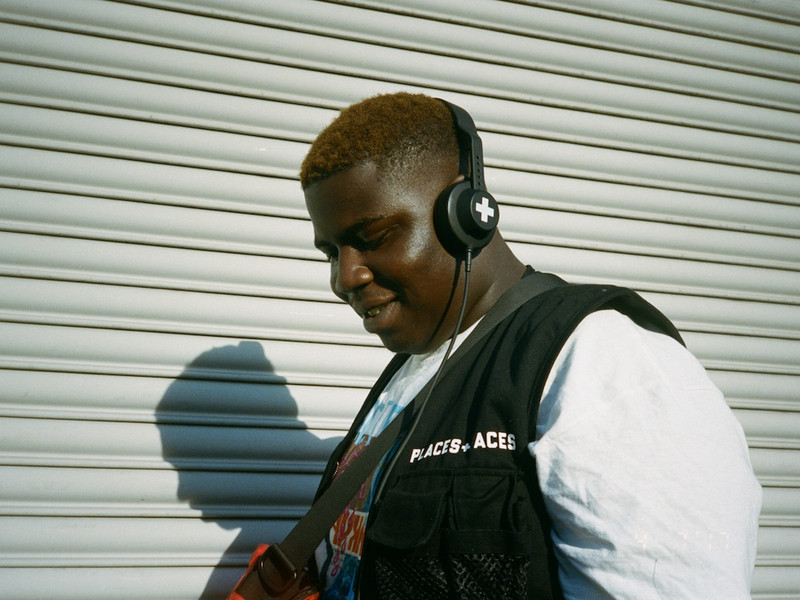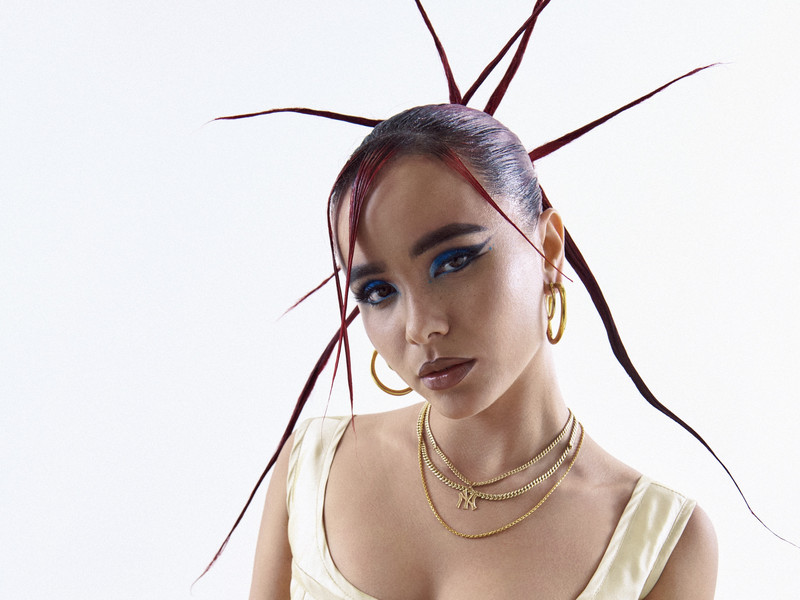Olivier Lafontant— With a name like Internet Girl, people would have the perception of the group looking a certain way, and I was surprised to find out that there are three dudes under a name like that. How did you guys come up with that name and what’s the audience that you look to attract with it?
Neese— The name was meant to [represent] the type of person that would listen to the music. It wasn't necessarily meant to describe us. At the time when we first started, we were kind of writing a lot of love type, indie pop songs. And it felt appropriate at the time. Nowadays for it to make sense, I think you would have to kind of come up with a reason for it to make sense, but it's still cool, we like it.
Griggs— I think also, how we've grown and changed over the last couple years is the same as how multifaceted the internet is. It contains everything that there is, you know? It’s all-encompassing. I remember [Neese and TK] telling me they were at a restaurant hanging out, getting something to eat and then it just came up quite [nonchalantly] and they were just like, yeah, that sounds cool.
It's pretty clear that the music that you guys make now is reflective of trends that either come from here in the States or in England. What are the challenges that have come with that and how do you guys think your music compares to the artists around you in South Africa?
TK— The biggest problem is people not fucking with it for what it is and just fucking with it for the novelty. I remember for the longest time my black friends would always be like ‘Yo, this music is really white, this is that white shit!’ And I’d be like ‘Is that all you get from it, you don’t really fuck with it?’ And people always then treat you like a prerequisite for something greater, like ‘Aw just keep doing your thing, it’s gonna be dope.’ It just takes a while for people to catch on. But we’ve never been too fazed about that. I think I’d be so disappointed if people just accepted it and there was no conversation around the music, that would be wack.
Neese— I think initially when we were making the indie pop stuff, we were like, ‘Hey, this kind of works in a South African context’ because there were bands making that kind of stuff, you know? And then as we started getting into weirder music––like [How I’m Feeling Now by Charli XCX] was a big turning point––we started making weirder kind of music. We're like, ‘Hey, we don't fit in here, this is gonna be a challenge. We're not gonna get booked for shows. People in our own city are not gonna rock with us.’ Over here people like amapiano and hip hop so it was tough, but I think we're carving out our own lane on the side, kind of building a cult following for the kids that do rock with it. And the kids that do resonate with it really resonate with it hard because it's kind of something that they've seen on the internet, they've seen people do it in the US and in the UK, but they've never really had someone at home to rep that makes what they like. We’re tryna create that scene.
Griggs— In South Africa, people always be coming up to me all the time being like, ‘Man, I don't usually listen to that sort of shit, like that weird shit, but like, I fuck with y'all!’ You know what I mean? I like the idea that what we're doing is also like expanding the musical palette of people from our own country and reshaping what it means to sound like a South African artist.
Who were some of those early influences for you guys that you got off the internet?
Neese— I would say it goes as far back as Skrillex. I have Skrillex's record label tattooed on my arm, I was a huge dubstep head. So that electronic element came through. During the whole bedroom pop phase we fucked really with the the usuals like the Clairos and the Tame Impalas and then that had the influence. We've all also all listened to hip hop and trap, so that also became an influence. So I would say those are the three main things: we listen to a lot of electronic music, a lot of indie, and then a lot of hip hop and trap. And we've kind of decided which one we were gonna do, and now I think it's coming together in a nice cohesive way.
TK— From the very start I would say it’s EDM music ‘cause that was the pretense for me and [Neese’s] relationship, just listening to dubstep or whatever Deadmau5 was putting out at the time. We always just wanted to listen to underground music or just jarring music that no one else like ‘cause I guess it made us feel like we were cooler than everyone. We’ve kept that ethos until today, just looking for what’s fresh and what’s new. Now, personally I would say hip-hop is a big influence for my writing.
Were you discouraged at a certain point when you guys started to cultivate your own sound and you felt that people were pushing back against it or people weren't really accustomed to it? Or have you guys always been hardened in your vision of just trying to accomplish what you want to accomplish?
Griggs— Now people are really starting to recognize us in real life, but it very much used to be a situation of [us] doing well online and we would get these streams and these playlists, but no one in our own country knew us. Like no one was booking us for shows. Our first ever show, we had to put on the event ourselves because no one knew who we were. We just had this online presence completely separated from our real lives. But we’re changing that and starting to bring a real life motion that just exceeds further than online numbers and things like that.
Neese— I think the numbers were a big thing initially for us to keep going 'cause we were like, ‘People are listening to this somewhere out there in the world. No one knows who I am, my family don't recognize it at all, no one really knows what we are doing, but the numbers [were] there so something's going right and we’re just gonna keep doing what we’re doing.’ And eventually people started to catch on.
Griggs— Yeah it's spilling over into real life now, like we go play these shows and not even in our own city, like in a different city in South Africa, and [we play a song that’s] been out for like three days and every single person in the crowd knows it. That wasn't even close to happening a few years ago. So it's cool that it's spilling over and we’re starting to get a bit of love from the place we're from.
In a previous interview, I read that you guys said that your egos were kind of inflated after being signed to your first record deal and you were expecting things to pick up a bit faster than they actually did. What have you learned about yourselves since then?
Neese— Shit.
Griggs— Financial responsibility of a grown-up.
Neese— *laughs* And that the music industry is tough, dude. I don't know, we were young, we were still in university. We were like, ‘Fuck, okay, we got signed, we are gonna fuckin’ blow up, like give us a year, we're gonna be rich and famous. And then we had a really, really tough year. We fuckin’ wasted our entire advance, we went broke, we had to go move back with our parents, we had to figure shit out again. And then we came back into the whole thing with much more humility, thinking this is gonna take a lot more work than we thought it was gonna take. We got signed in 2020, we moved together to Cape Town in 2021, we took the advance and got a lease. Halfway through the year we ran outta money. We couldn't even buy butter to put on our bread and shit, we were putting, like, olive oil.
